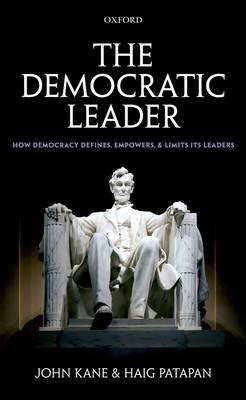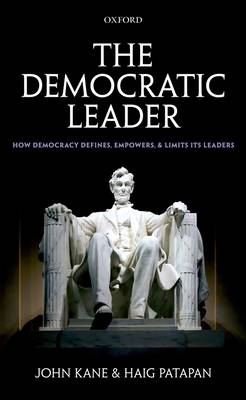
- Afhalen na 1 uur in een winkel met voorraad
- Gratis thuislevering in België vanaf € 30
- Ruim aanbod met 7 miljoen producten
- Afhalen na 1 uur in een winkel met voorraad
- Gratis thuislevering in België vanaf € 30
- Ruim aanbod met 7 miljoen producten
Zoeken
The Democratic Leader
How Democracy Defines, Empowers, and Limits Its Leaders
John Kane, Haig Patapan
Hardcover | Engels
€ 225,95
+ 451 punten
Omschrijving
The Democratic Leader argues that leaders occupy a unique place in democracies. The foundational principle of democracy -- popular sovereignty -- implies that the people must rule. Yet the people can rule only by granting a trust of authority to individual leaders. This produces a tension that results in a unique type of leadership, specifically, democratic leadership. Democratic leaders, once they have the confidence and authority of the people, are very powerful because they rule through consent and not through fear. Yet in many respects they are the weakest of leaders, because democrats distrust leaders and impose on them a range of far-reaching constraints--legal, moral and political. The democratic leader must perpetually navigate the powerful and contending forces of public cynicism, founded in the suspicion that all leaders are self-interested power-seekers, and of public idealism, founded in a perennial hope that good leaders will act nobly by sacrificing themselves for the people. The Democratic Leader suggests that the inherent difficulty of this form of leadership cannot be resolved, and indeed is necessary for securing the strength and stability of democracy.
Specificaties
Betrokkenen
- Auteur(s):
- Uitgeverij:
Inhoud
- Aantal bladzijden:
- 218
- Taal:
- Engels
Eigenschappen
- Productcode (EAN):
- 9780199650477
- Verschijningsdatum:
- 23/05/2012
- Uitvoering:
- Hardcover
- Formaat:
- Ongenaaid / garenloos gebonden
- Afmetingen:
- 145 mm x 216 mm
- Gewicht:
- 408 g

Alleen bij Standaard Boekhandel
+ 451 punten op je klantenkaart van Standaard Boekhandel
Beoordelingen
We publiceren alleen reviews die voldoen aan de voorwaarden voor reviews. Bekijk onze voorwaarden voor reviews.











